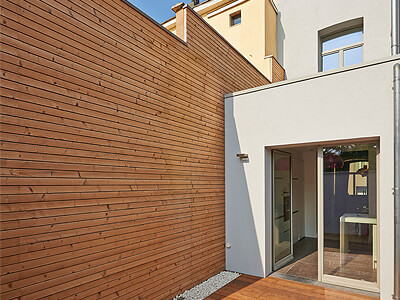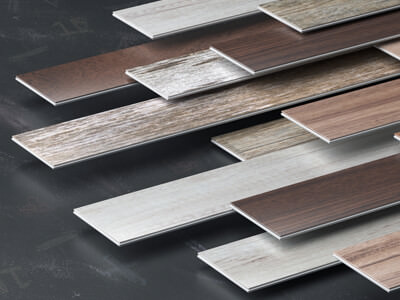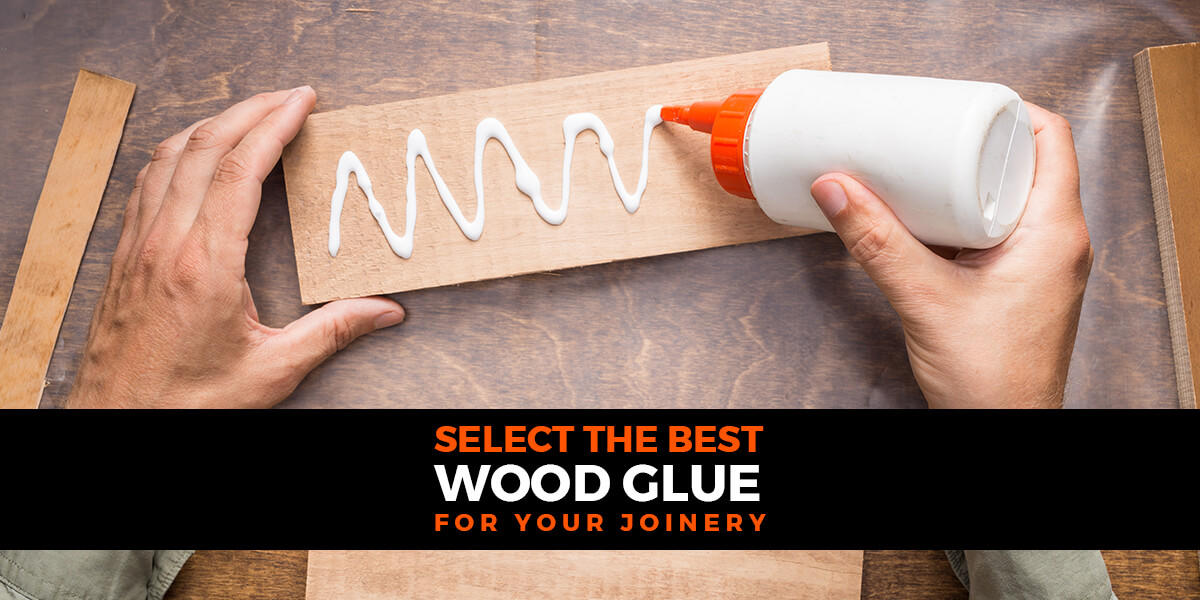
The very first glue we know of is Birchbark tar, which was in use more than 200,000 years ago. Since then, as technology has evolved, so have ways of sticking things together.
Since the invention of PVA glue in the 1950s, we have seen a lot of new glue formulas come to market. So many new formulas in fact, that deciding which is right can be a challenge at times.
The best way to understand if a glue type will be right for your use is to know where the advantages and disadvantages of each glue lay.
In our guide to glue, we cover the most popular glue formulas used for woodwork to help you decide which is the right option for you.
PVA
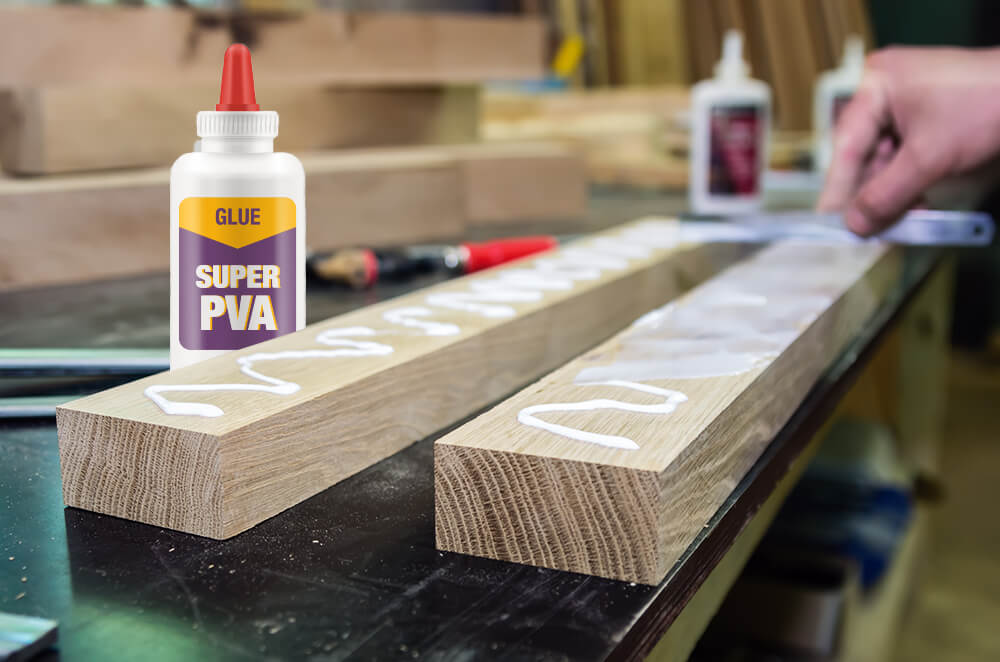
PVA, or Polyvinyl acetate is the wood glue that all carpenters have come to know and love. Commonly referred to as wood glue or white glue, PVA has set itself as the best all-purpose wood glue on the market.
Pros of using PVA glue
- Curing- PVA-based glues cure in the air, meaning that between brands and on different materials, PVA glue will retain a relatively consistent and predictable cure time. However, newer PVA formulations, such as Titebond III, offer shorter cure times and higher durability.
- Cost - PVA is the cheapest out of all the main wood glues, performing on par with glues that come in at a much higher price point.
- Lasting - As PVA cures with air, if kept in an airtight container, the shelf life is longer than that of polyurethane or other CA glues. Most PVA containers will come with a small nozzle to keep it airtight after initial use; if not, use the best airtight container you have access to.
- Non-Toxic - PVA is one of the few wood glues that is completely non-toxic. Working in closed environments without ventilation is not a problem when using PVA, which is mainly why it remains a staple in schools for arts and crafts work. However, please note that some industrial-grade PVA glues may contain additives requiring ventilation. Always check the label.
- Strength - PVA is a strong glue, at times, even stronger than wood. Although it may not be quite as strong as other available glues, it remains more than strong enough for most woodworking applications.
Cons of PVA glue
- Temperature - PVA glue should not be used in freezing temperatures for extended periods. Temperatures well below freezing will cause the polymer bonds to freeze and break, rendering the glue useless after excessive freezing and reheating cycles. Getting cold on the odd occasion is not a problem. If used outside in areas that often drop below freezing, PVA is not the right glue for you.
- Water-soluble - PVA is water-soluble but not waterproof. Getting wet for short periods of time will not be a problem. Being submerged in water, especially for longer periods, will damage the glue and eventually lead to failure. If you live in a rainy area and need glue outdoors, PVA is not well suited to the task.
- Cure time - While PVA is quick to set, a full 24-hour cure is usually recommended. 24 hours for a full cure is considerably longer than other rival glues on the market
- Degradation - PVA will not degrade on its own, but in anything other than a perfect environment, bacteria, and fungi will eventually degrade PVA, breaking the polymer bonds. This is by no means a quick process, but it is worth noting if making outdoor furniture you intend to last for a long time.
- Material - PVA is only suitable for porous materials. Wood, cloth, and paper are the best use cases for PVA glue; however, it falls short when it comes to glueing smoother materials like plastic, metal or glass.
Polyurethane Glue
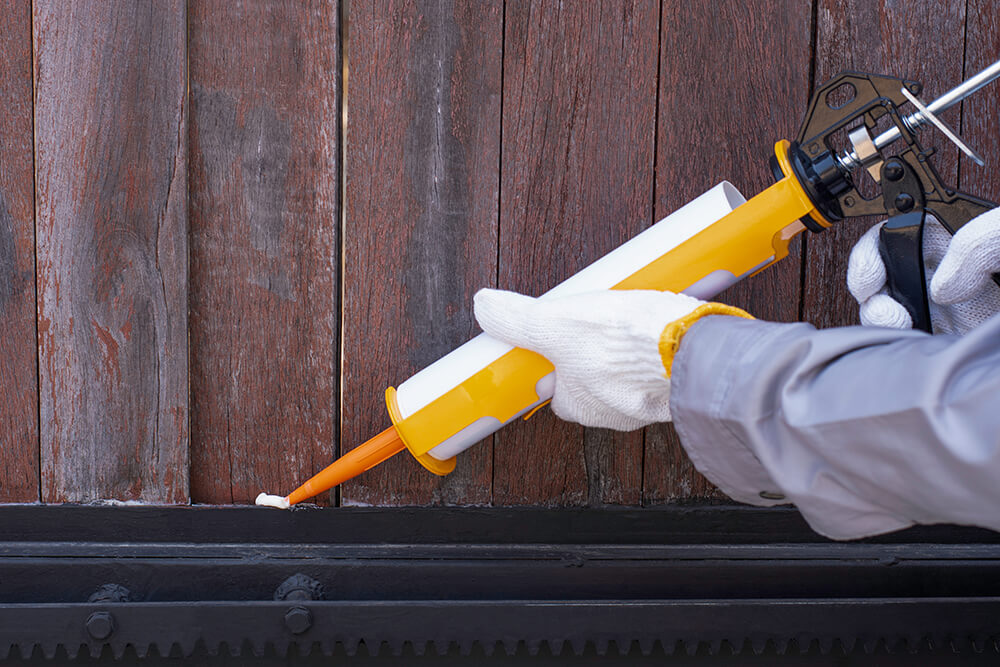
Polyurethane glue, often referred to as waterproof glue or gorilla glue, is a polymer-based permanent elastic adhesive that has become a staple in the construction and woodworking industries. Unlike PVA glue, polyurethane is not predominantly a wood glue but an all-substance adhesive.
Pros of polyurethane
- Versatility - Polyurethane can adhere to even the smoothest substances, making metal and glass well within its adhesive ability. If you need to glue anything other than wood, polyurethane glue overtakes PVA's ineffectiveness.
- Waterproof - Polyurethane glue is not water-soluble, meaning your joints will remain waterproof for many years to come. Unlike PVA glue, polyurethane does not draw in moisture, so it can be used in a wet environment with zero loss of strength.
- Expansion - Polyurethane glue expands on setting. When we use this on an end-grain wood, the expansion can fully penetrate the end grain, creating a much stronger bond than PVA can achieve.
- Cost - Polyurethane can cost more than PVA glue, it is however much cheaper than other comparable glues like CA glue or epoxy-based glues.
- Large surface - Due to the polycrystal bond nature of polyurethane glue, it excels at large surface area glueing work.
- Shear force - Polyurethane expands into wood fibre when used on an end grain. This results in a load force just as strong as PVA, while also achieving a much higher resistance to shear forces.
Cons of polyurethane
- Cost - Polyurethane glue is considerably cheaper than epoxy; it is also considerably more expensive than PVA glue. If the nature of work is only on wood, PVA achieves a much better cost-to-performance ratio.
- Toxic - Polyurethane glue releases fumes that can be toxic if inhaled for an extended period of time. When working with polyurethane glue, be sure to work in a well-ventilated area or outdoors.
- Cure - Polyurethane glue uses moisture to cure. Environments with different amounts of moisture in the air or substrate will result in varying curing times.
- Expansion - Polyurethane expands on curing, which can often push glue out of joints and make a rather large mess. Be sure to rub alcohol or acetone on hand to tackle any spills before drying. If left to dry, acetone will be required to weaken the exterior bonds and a scraper. Be sure to take care not to damage your surface finish when scraping off the excess.
- Elasticity - When cured, Polyurethane glue keeps some elasticity. This can allow some flex in certain applications. While not always a bad thing, be sure to consider the additional potential of flex before using it in a project.
Epoxy
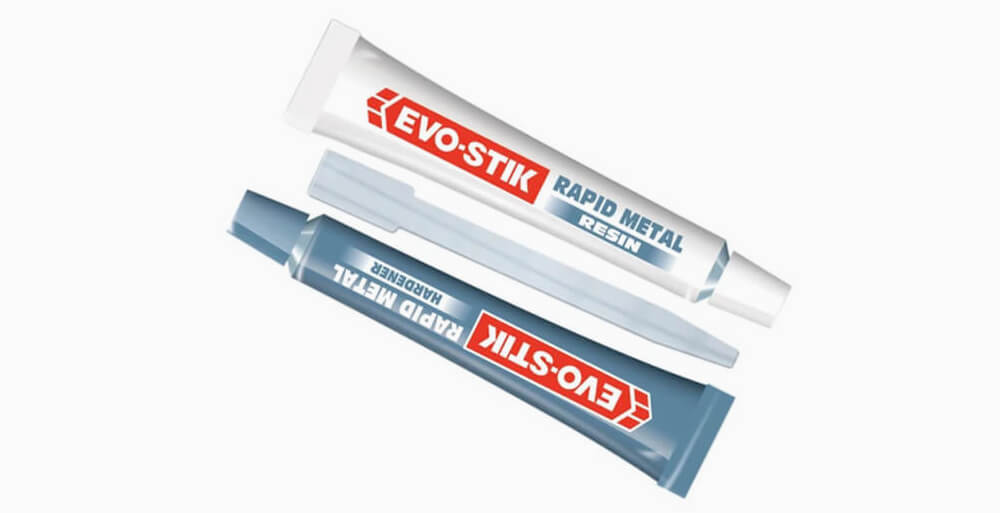
Epoxy is one of the latest and greatest adhesives available in the consumer market. Commonly found in a two-part activation format, epoxy can be used on almost any substrate to achieve the strongest bond possible.
Pros of epoxy
- Strength - Once mixed and cured, epoxy stands to be the strongest glue available. When used in wood applications, the tensile strength of wood is far more likely to fail than that of epoxy. A few variations of the two-part epoxy blend have proven to be harder than steel.
- Gripping force - Provided the surface is sufficiently prepped, in the case of wood, just cleaned well. Epoxy will grip harder than wood's tensile strength, allowing it to permanently bond in any wood application.
- Curing - As the epoxy is a two-part mix with a curing agent, temperature and moisture levels will have little to no effect on epoxy curing times. When working as a glue of this strength, predictable and consistent cure times will make work a lot easier.
- Waterproof - Epoxy glues are waterproof, most to the extent that they can bond and cure underwater. For any woodwork project that will see a lot of moisture, like on a boat, epoxy is the perfect adhesive.
Cons of epoxy
- Cost - Epoxy is the most expensive form of wood glue. Because of its price, it is best used when strength is critical.
- Toxic - Epoxy can release toxic fumes and be poisonous if ingested. When using epoxy, be sure to do so in a well-ventilated area or outdoors.
- Brittle - While extremely hard, epoxy can be brittle. Epoxy is best used in a situation that involves constant loads or slow-appearing forces. Sudden jolts or shocks can cause the epoxy to crack.
- Cure time - The cure time of most epoxies is conveniently short but can also be unforgiving if any changes need to be made. Only consider using epoxy if you are sure that the joint will not need to be released again.
- Mess - With needing to mix the two parts of epoxy, it is notoriously messy. Be sure to wear gloves and mix on an object you are willing to dispose of afterwards.
Which Glue Is Best?
There is no one-size-fits-all answer, as different glues specialise in different applications.
Use the glue that is best for your application and that you feel most comfortable using. All the glues mentioned above are strong enough for any normal woodwork, like building a table or a frame.
For the average woodworking hobbyist, PVA glue should be able to fill all of your sticky needs. If you are more than a hobbyist, it's best to have a range of glues to make the best use of each option in a specific case.
